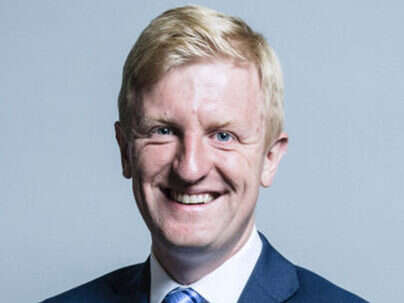
The Cabinet Office has rebutted about 70 false claims per week since the coronavirus (Covid-19) crisis hit the UK, the Culture Secretary said today.
The Government set up a counter disinformation unit last month to monitor social media and respond to false claims about the virus.
Oliver Dowden (pictured) told the Digital, Culture, Media and Sport Committee today that the Cabinet Office is leading on the “rebuttal of false narratives” as part of the unit, but that it also involves the Home Office, DCMS, Number 10 and other agencies.
The Cabinet Office published a lengthy rebuttal to a Financial Times story and its journalist’s Twitter thread at the weekend, claiming it included “multiple inaccurate and misleading claims about the UK’s work to procure and manufacture ventilators in response to the COVID-19 public health emergency”.
The DCMS role is to work with social media companies to understand what is going on and encourage them to “beef up” their systems for the removal of problematic content, Dowden said.
“Traditionally – I say traditionally but it’s only been for the past few years – the disinformation cell has been used in respect of democratic events in order to analyse and counter the threat of hostile state interference in democratic events.
“But we took the view that in respect of this unprecedented public health crisis and the risk of misinformation we should step it up.”
Despite the work on rebuttal of false claims, Dowden repeatedly said that the “single best thing we can do to counter false narratives is just to drive reliance on reliable narratives”.
He said traffic to the gov.uk website had grown “enormously” and also pointed to trends showing that broadcasters and newspapers were seeing their audiences grow.
He also said the number of 16 to 34-year-olds watching the 6.30pm BBC One news bulletin had gone up by 144 per cent.
Damian Hinds MP raised the work done by factcheckers, saying that with the exception of Channel 4 News’ Factcheck they are not usually well known brands meaning “hardly anybody gets to see their output compared to the falsehoods that they are rebutting”.
He therefore questioned whether there should be more “primetime addressing of misinformation on broadcast media and in the newspapers, obviously done in such a way not to add to the glorification of their originators but just to make sure people get the facts straight”.
But Dowden said the priority was on maintaining the work of trusted news sources.
“The challenge with the factchecking point is two things – first of all we live in an open liberal democracy, we value free speech and we value robust public debate and sometimes it’s not easy to get to the absolute truth on some things,” he said.
“Secondly, and we certainly saw this in respect of the nonsense that was going around about the health threats from 5G, that in rebutting it you can expose it to a much larger audience.
“So it may be a relatively limited number of people that see it initially, if I go out and tweet a rebuttal then it’s ‘Secretary of State rebuts it’ and news outlets will report on that so there’s a balance to get there as well which is why I think the principal focus is good news sources and the secondary focus is trying to deal with the misinformation.”
Dowden praised all broadcasters “for the work that they’ve done to get clear messages out to the public” and particularly praised the BBC for showing “some of its very best during this crisis”.
“It has stepped up to the plate as a public service broadcaster and helped people understand what they should do in this crisis and provided good factual information,” he said.
However he then mentioned a story that was run prominently on the Today programme and on the BBC News website, among other outlets, last week that claimed an NHS Trust boss had contacted the BBC with concerns over PPE supply and asking for contact numbers for clothing brands Burberry and Barbour.
The BBC was later forced to admit, in a correction published on Monday, that the person who called was not the boss of an NHS Trust but in fact part of a network of organisations helping to source PPE for some trusts.
“The mistake was caused by a misunderstanding of the person’s role in the fight against the pandemic,” the correction said.
Justifying the Government’s pursuit of licence fee decriminalisation, Dowden said today: “The BBC will always be held to a high standard.
“I want the BBC to continue to be central to our national life but I think the BBC, like all our institutions, needs to reform and evolve and adapt to the challenges it faces.”
Picture: Parliament
Email pged@pressgazette.co.uk to point out mistakes, provide story tips or send in a letter for publication on our "Letters Page" blog
